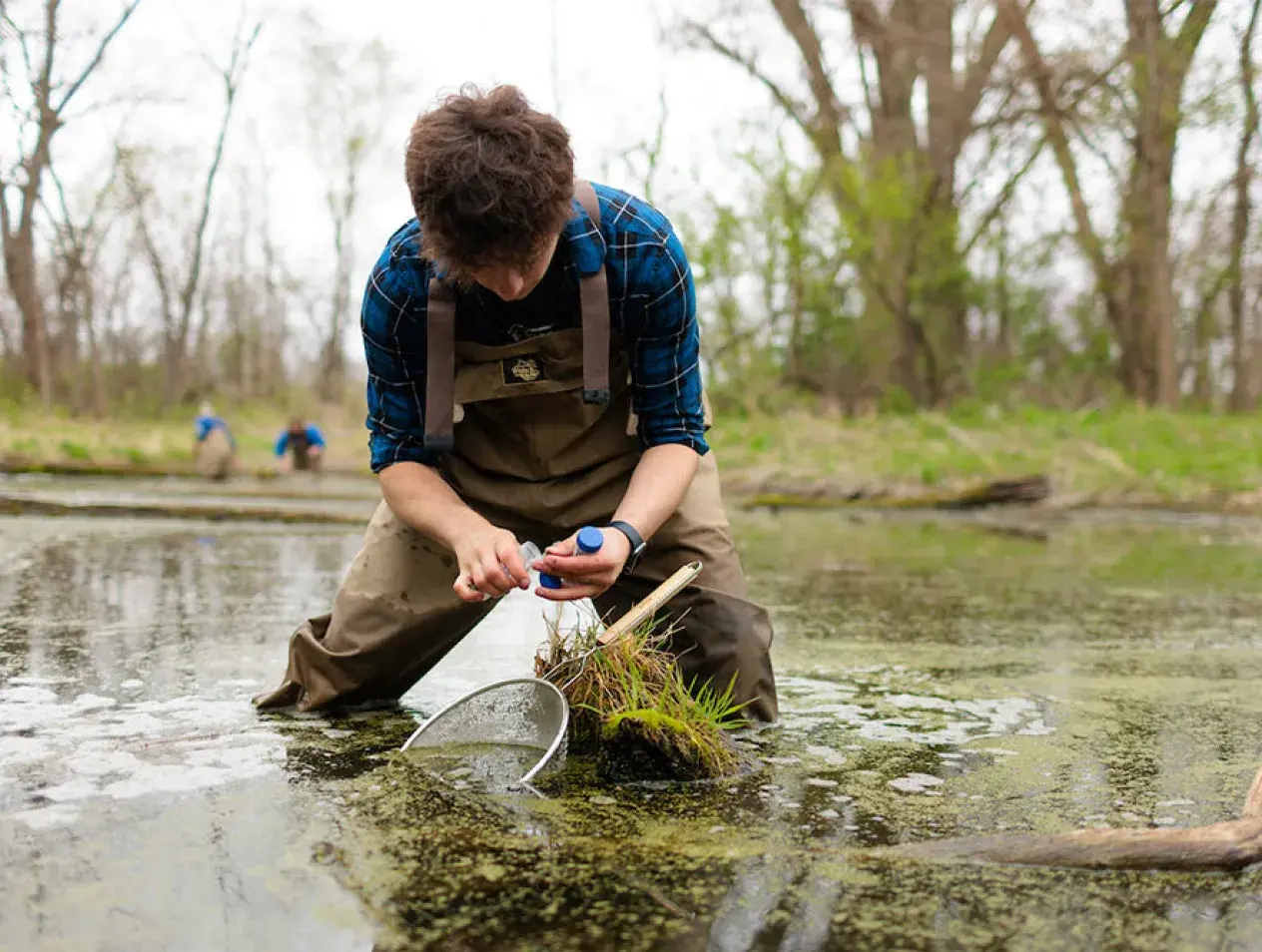
Biology Career Information
Careers in Biology
The majority of the opportunities for biologists are in the fields of biotechnology, medicine, agriculture, and environmental fields. But Creighton biology majors are also graduates with a broad liberal arts education and can compete successfully for jobs in the general economy. Alumni of our department include physicians, dentists, deans of medical and graduate schools, research scientists, environmental analysts, nature center interpreters, and teachers, as well as archbishops and presidents of major companies.
This page provides a brief overview of some biological career options. These additional links can provide more detailed information.
A degree in the biological sciences is one of the most logical preparations for training in medicine, dentistry, and the allied health professions. Creighton biology majors are successful applicants to professional schools in the health sciences, including Creighton’s own professional schools. The Biology Department’s faculty have a wealth of experience in pre-health advising and work closely with the University’s other pre-health science advisors.
Because of the diversity of faculty and courses, a Creighton biology degree can provide appropriate preparation for graduate work in many areas of the biological sciences. All of Creighton’s biology faculty are Ph.D. biologists with active research programs and professional connections with scientists at other institutions. Thus they are able to provide undergraduate academic and research training and career planning to help a student prepare for and apply to graduate school. The Graduate Record Examination (GRE) should be taken in the spring of the junior year or, at the latest, in the fall of the senior year. The GRE General Test is required by almost all graduate schools, and many programs require either the Biology or Biochemistry, Cell and Molecular Biology Subject Test. Registration for the exams is online.
The Department has a full set of field and laboratory courses offering undergraduate preparation for careers in environmental science. Creighton also offers specific programs in Environmental Science, including a Certificate through the University College and Bachelor of Science degree through the College of Arts and Sciences. Faculty in the departments of Biology, Physics and Chemistry offer courses on global environmental systems, environmental pollution, population biology, and ecology. Recent graduates are working at or training for jobs as game and park biologists, nature center interpreters, environmental chemists and analysts, technical assistants in ecology research stations, and satellite remote-sensing data analysts. Our ecology and field biology courses are specifically designed to provide familiarity with the concepts, techniques, and equipment that provide a head start toward advanced training in these areas.
One of the fastest growing fields, not just in biology, but in the economy at large is biotechnology including medical and agricultural applications of new molecular genetic techniques. A Creighton degree will provide sound footing in the principles and techniques upon which this field is based, offering an avenue to graduate training in this exciting area. Creighton’s liberal arts and Jesuit setting also provide courses in bioethics and the social role of scientists and technicians that put Creighton students in an advantageous position to deal with emerging problems as well as opportunities provided by the new technology.
There is an increasing demand for well-qualified secondary school science teachers. Biology courses are part of a program leading to a secondary school teaching endorsement in biology as a primary or secondary area or as part of a natural science program. Information on biology as part of a secondary education programs is available from the undergraduate committee chairman or from Creighton’s Education Department.
The Department of Labor’s Bureau of Labor Statistics lists a number of “traditional” biology job fields among those with the greatest growth potential: physical therapist; speech and hearing clinician; dietitian; biomedical technologist; veterinarian. It also lists a number of “non-biological” job areas for which a Creighton biology major could well compete successfully: computer technician; computer programmer; data processor; banking, credit, or insurance specialist; surveyor. A minor or other supplemental coursework in areas such as business, math or computer programming can help a student increase his or her employment prospects.
Brochures and Publications:
| Career Sites:
|


